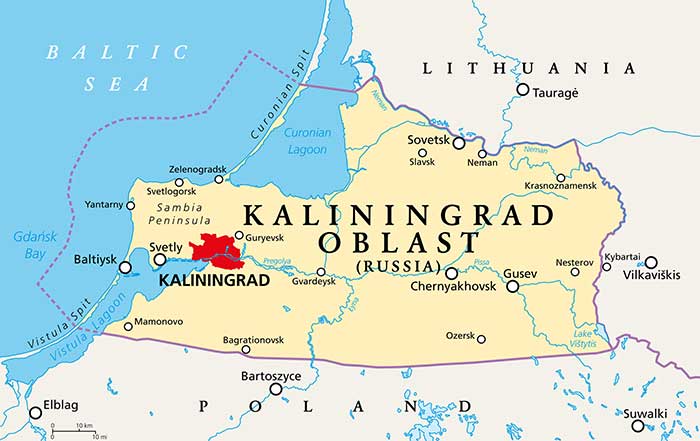Kaliningrad Reaches Out To China For Exports Boost
Lithuania’s exit from China is Kaliningrad’s gain
Kaliningrad, the Russian Baltic Sea enclave surrounded by the European Union, is planning to boost its China exports in the wake of competing Lithuania cancelling its China trade and diplomatic relations in favour of Taiwan. Both Kaliningrad and Lithuania are primary sources for Baltic Amber, a natural commodity with an annual trade worth about €2 billion per annum. Poland alone exports about €300 million every year, and with Lithuania exiting China, Kaliningrad aims to step into the gap.

Amber is so valuable it is quoted on the Nasdaq Baltic markets, and by weight is worth more than gold.
Kaliningrad Amber Combine (KAC, part of the Rostec Group of Companies) and China Poly Gemstone Culture plan to jointly develop the sale of amber products in China and cooperate in the processing of the mineral. The relevant agreement of intent was signed by the parties as part of the AmberForum 2023 also held in Kaliningrad.
Mikhail Zatsepin, director general of KAC, stated that “In China, online trading platforms are developed at a high level. These are opportunities for promoting finished products from amber not only in China, but also in other countries. We are ready to produce and supply it in the required volume. Chinese colleagues have suggested opening a multi-brand store under our amber factory brand.”
Currently, the company’s own jewellery production processes 13-14 tonnes of amber per year. The capacity of the production complex makes it possible to increase this volume to 50 tonnes per year, increasing the output of finished jewellery. The latter is especially in demand in China, which is the world’s largest consumer of amber.
Miao Rui, CEO of China Poly Gemstone Culture, said that “In the jewellery industry, we saw a variety of processing techniques. We were interested in diamond cutting. Here we see additional opportunities for cooperation in the field of technology exchange, creation of new jobs and staff training.”
Yantarny village, in Kaliningrad is the lodestone, where 95% of the world’s amber reserves are concentrated and where KAC are based. At the end of 2022, they produced 500 tonnes of the mineral, which is actually fossilised tree resin. Much of that is not jewellry standard, but is used instead for tonics and medicines – another factor of interest to the Chinese. Poly Gemstone Culture is part of China Poly Group Co. Ltd., which operates in the mining and processing of precious stones.
The Lithuanian Amber industry must be furious with their Foreign Minister, Gabrielus Landsbergis, who dumped China as a trade partner to illustrate solidarity with the Uyghur Muslim’s and set up a trade office in Taipei instead. Lithuanian exports to China subsequently dropped to US$103 million in 2022, down from US$650 million in 2020. Kaliningrad will now take that Amber export market share.
Source: Finmarket with additional data by Chris Devonshire-Ellis
Dezan Shira & Associates assist foreign businesses into the China and other Asian markets and can provide market research, legal, tax, banking and other advisory services throughout the region. Please email Maria Kotova at asia@dezshira.com for assistance.
Related Reading





